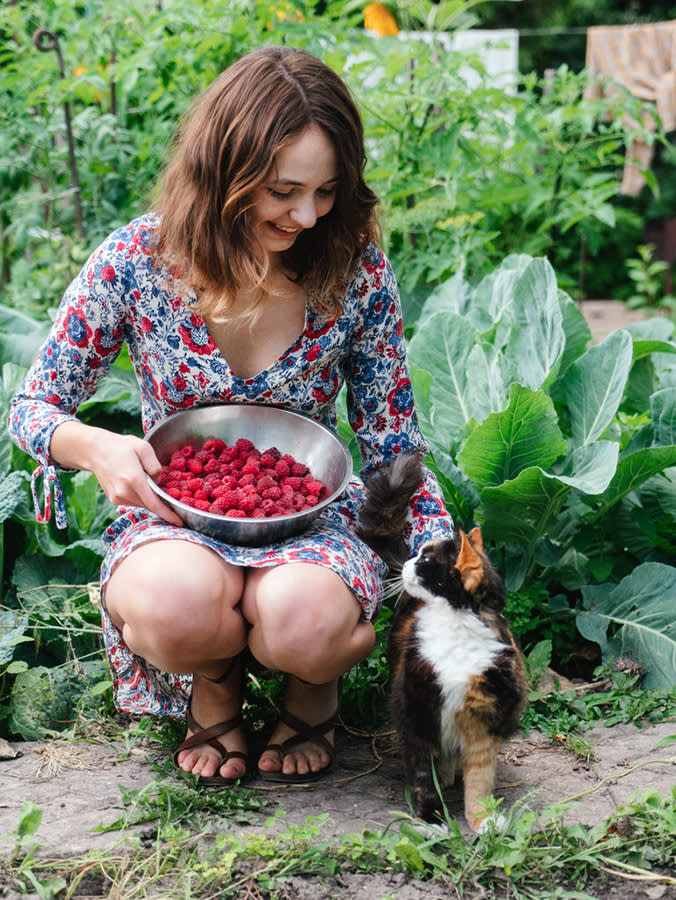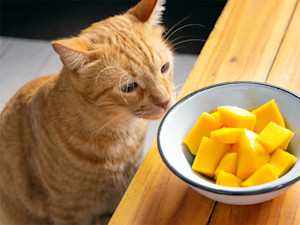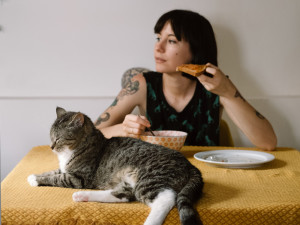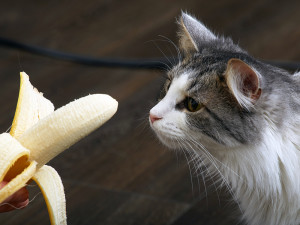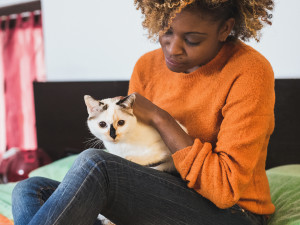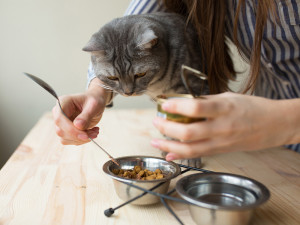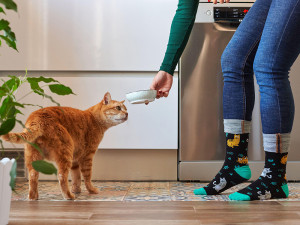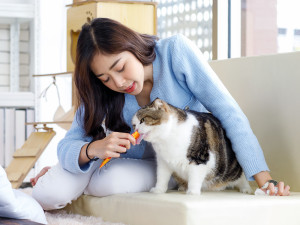Can Cats Eat Raspberries?
It’s a great summer snack for you but can you share raspberries with your cat?
With summer finally in full swing, raspberries are ripening and ready for the picking. Raspberries are so delicious that they often feel like an indulgence, but did you know that they offer tons of health benefits, too? So you may be wondering if you can share some with your cat. Yes, raspberries are safe for cats to eat in moderation as they are non-toxic to cats.
Because cats are obligate carnivores, they have very specific nutritional requirements, which means the bulk of their diet needs to be a complete and balanced cat food diet that is high in protein and fats. Read on to learn more about feeding raspberries to your cat.
Nutrition facts about raspberries
Raspberries provide potassium, essential to heart function, and proven to lower blood pressureopens in new tab. The omega-3 fatty acids in raspberries can also help prevent stroke and heart diseaseopens in new tab in humans. They contain a mineral called manganese, which is necessary for healthy bones and skin and helps regulate blood sugar.
Raspberries also contain other vital nutrients including vitamin C, fibre and antioxidants, which are beneficial to the immune system and to aid digestion.
Are raspberries good for cats?
Although raspberries are packed with essential vitamins and minerals that are beneficial to your cat’s overall health, keep in mind that overfeeding felines raspberries can lead to health complications and digestive illnesses like diarrhoea or upset stomach. One reason for this is that raspberries, like other fruits, have a fairly high sugar content. If you do introduce raspberries to your cat’s diet, you should only do so in small quantities, as an occasional treat.
The high water content in raspberries can help keep your cat hydrated, too, and the fruit’s high fibre content can help with their digestion. It’s not just what raspberries contain that makes them beneficial, though, it’s also what they don’t contain, namely fat. Being so low in fat and reasonably low in calories means they’re not as bad for your cats as other high-fat foods like ham.
Fibre: fibre is a form of carbohydrate that is not digestible but has many benefits for digestive health. Raspberries contain both soluble and insoluble fibre, so they can help to bulk up the stool and prevent constipation and also provide important nutrients for the gut microbiome. Fibre can also help cats to feel full without adding additional calories to their diet, which is a helpful strategy for cats who are overweight.
Vitamins and minerals: raspberries are chock full of important vitamins and minerals. They are often celebrated for their vitamin C content, however cats actually do not need to get vitamin C from their food like people as they can synthesise it themselves. Cats can benefit from other nutrients in raspberries including vitamin Aopens in new tab for early development, immunity and healthy eyesight; vitamin Eopens in new tab for skin; calciumopens in new tab for bones and teeth; and potassiumopens in new tab for the normal function of muscles and bodily systems.
Antioxidants: raspberries are high in so many bioactive plant compounds including flavonoids, ascorbic acid, anthocyanins and ellagic acid. All of these compounds are antioxidants, which can help to prevent inflammation. They’re also effective at helping cells fight off inflammation.
Are raspberries completely safe for cats?
While raspberries are non-toxic to cats, make sure you wash raspberries thoroughly and remove any stems or leaves before feeding them to your cat, as these may cause choking or other health problems. There are a few other things to note, too.
High-sugar content: raspberries are high in sugar, and as obligate carnivores, cats cannot process fructose the way that we do and they are at an increased risk for weight gain and diabetes when they consume a lot of sugar.
High-fibre content: while fibre has many health benefits, it can also cause digestive upset when too much is ingested, especially in cats that are not accustomed to it. It is best to start slow and offer very small amounts of fibrous foods gradually to see how your cat tolerates it.
The bottom line: can cats eat human food?
When it comes to sharing your food with your cat, it’s always important to double check that what you are offering is safe for your feline friend. There are some foods that are OK in moderation, but there are also some foods we eat all the time that are surprisingly toxic to cats.
If in doubt, consult your vet before offering your cat something new. Always make sure that what you offer is free of spices and oils that could be problematic for your cat, even if the main ingredient is safe.
Be sure to avoid foods that may be a choking hazard or cause injuries to your cat’s digestive tract, such as foods with bones, shells, toothpicks or skewers. And finally, remember that cats have very unique nutritional requirements so they must get the bulk of their diet from a balanced cat food diet. The occasional scrap of human food may be a delicious treat, as long as it is less than 10 percent of your cat’s total diet. Most important of all, be sure to provide your kitty with appropriate, nutritionally balanced cat food.
Foods that are good for cats
If you are looking for healthy snack options to share with your cat, consider some of these:
Watermelon can be a refreshing treat to share with your kitty.
Peanut butter is high in protein and good fats.
Apples are a great source of fibre and many important vitamins (although the seeds can be toxic ingested in large quantities).
Foods that are dangerous to cats
Garlic is toxic to cats and can cause life-threatening anaemia.
Onions are toxic to cats and can cause fatal health complications.
Chocolate is toxic to cats and can cause a range of health problems depending on how much is ingested.
Note: while caution was taken to give safe recommendations and accurate instructions in this article, it is impossible to predict an individual cat’s reaction to any food or ingredient. Readers should consult their vets and use personal judgement when applying this information to their own cats’ diets.
